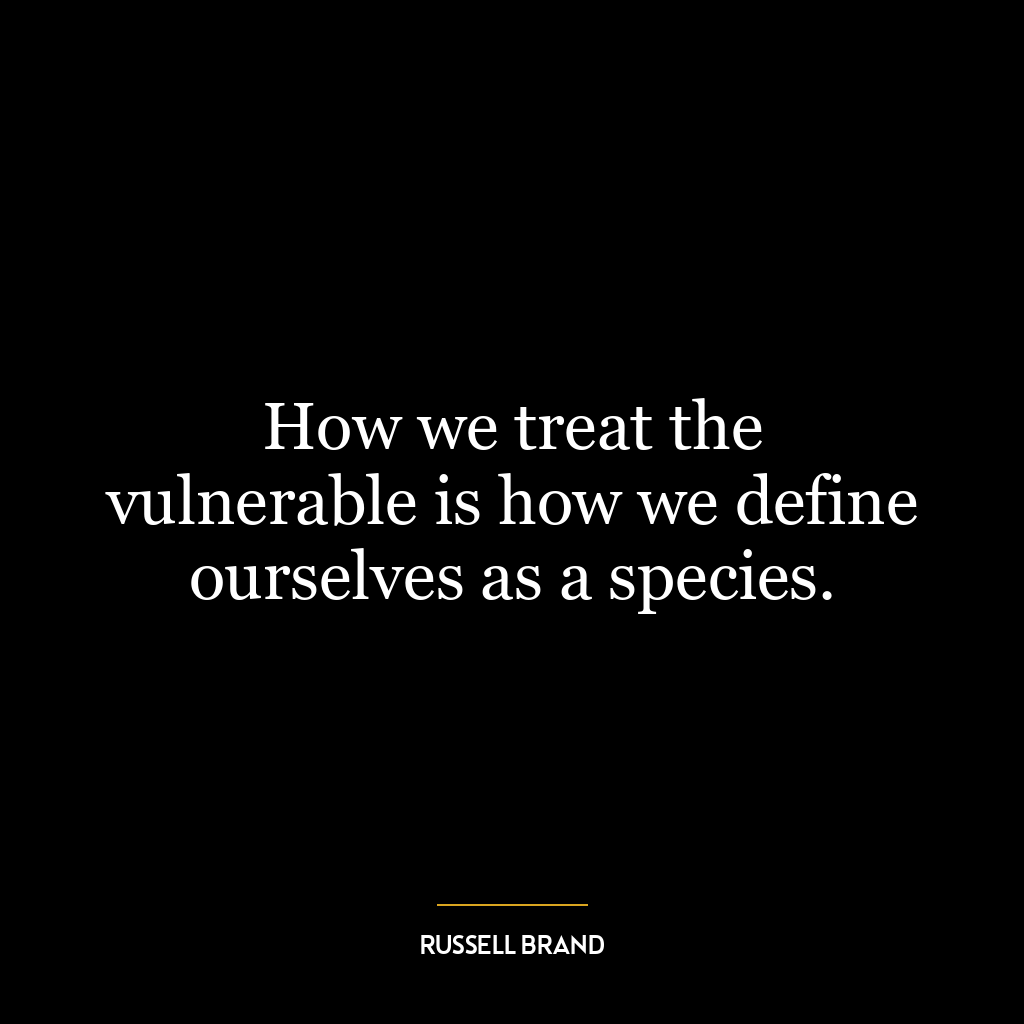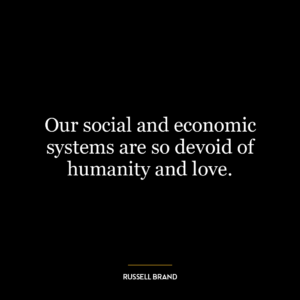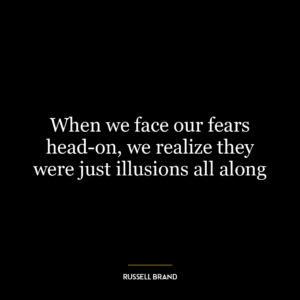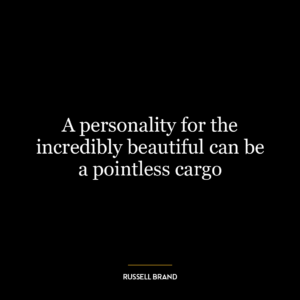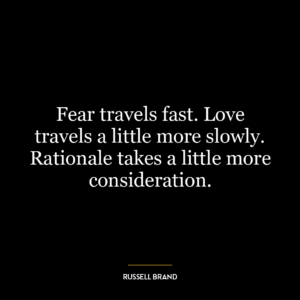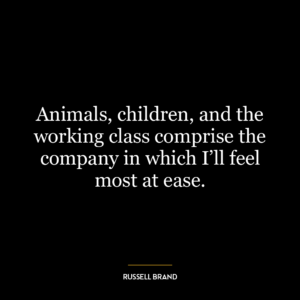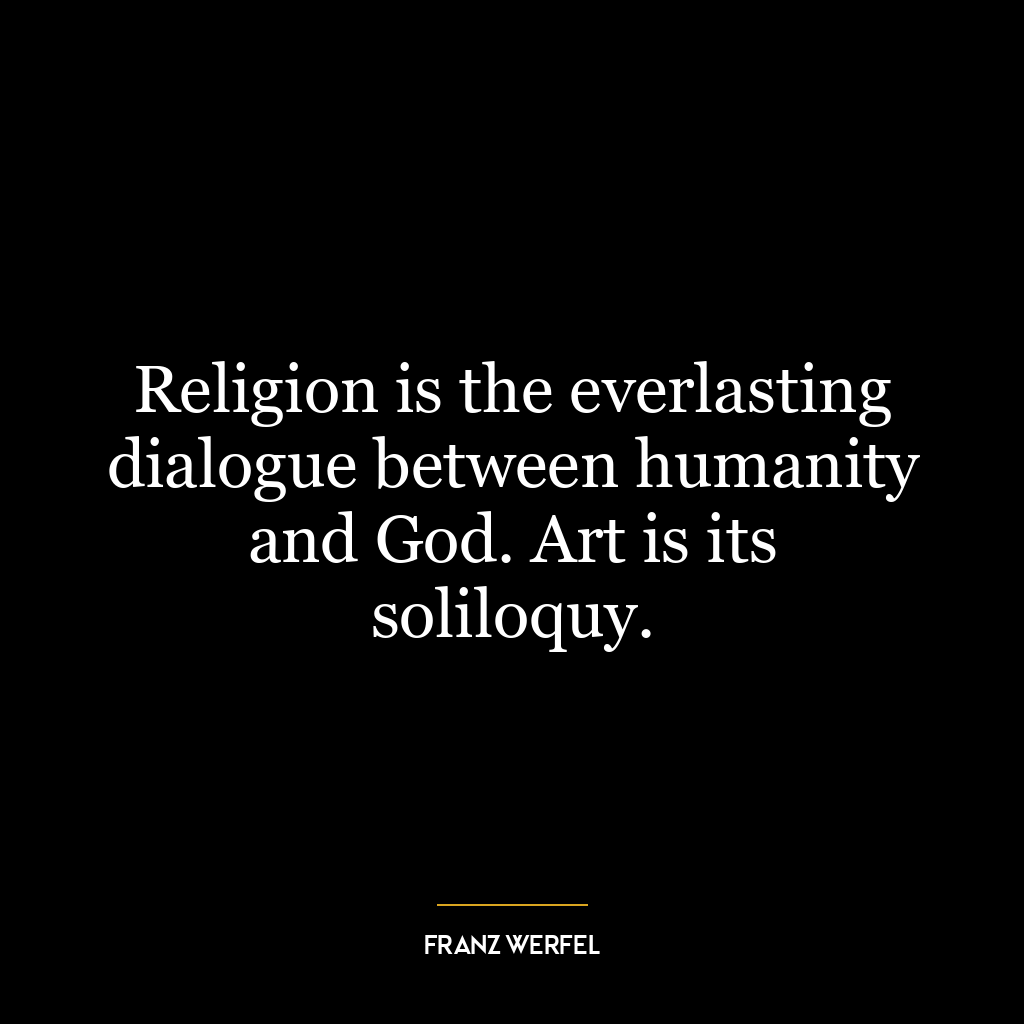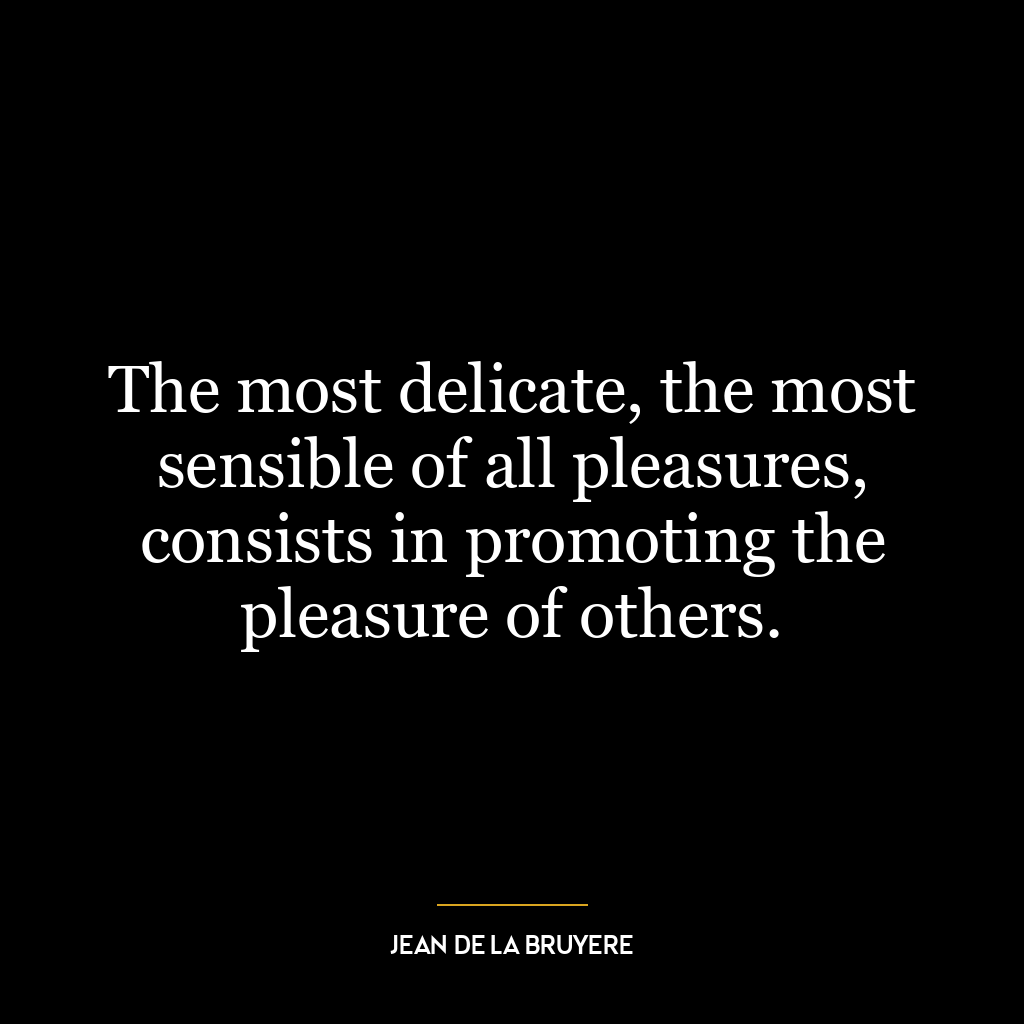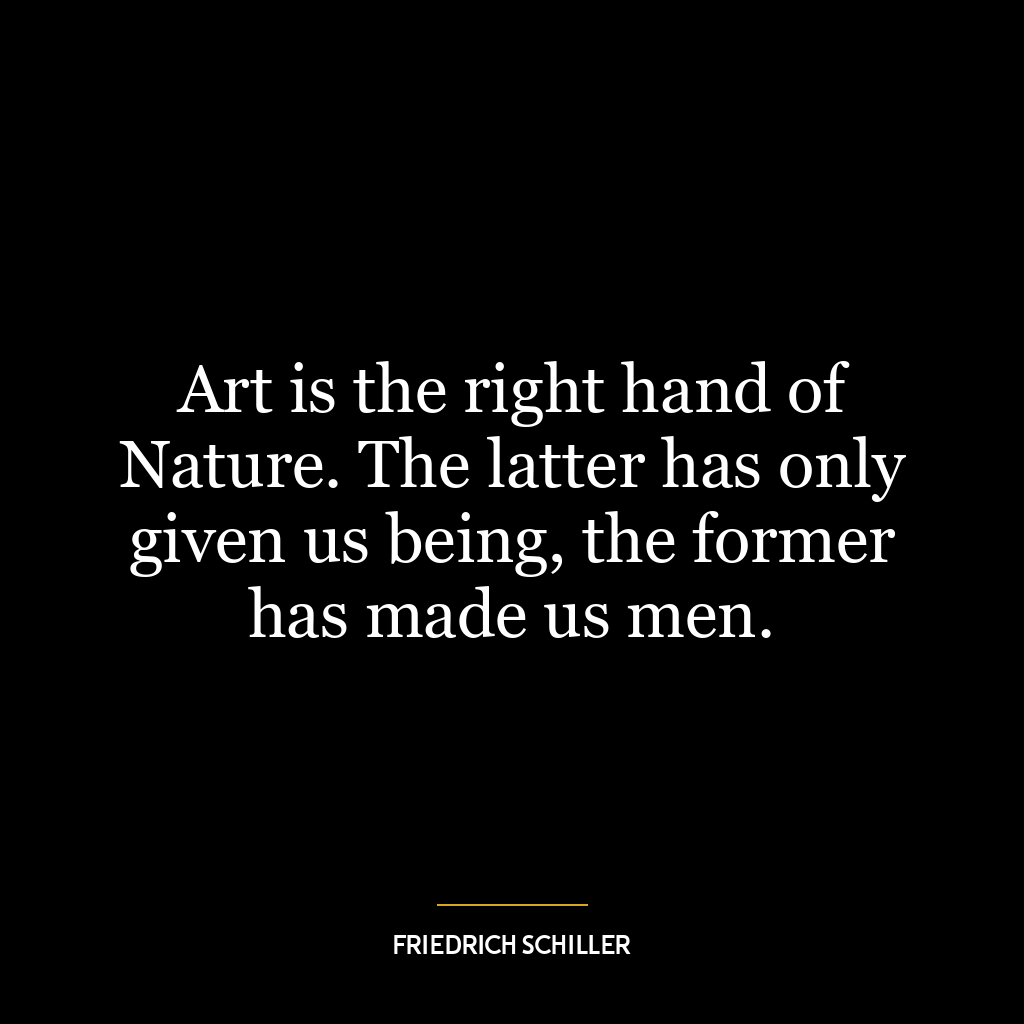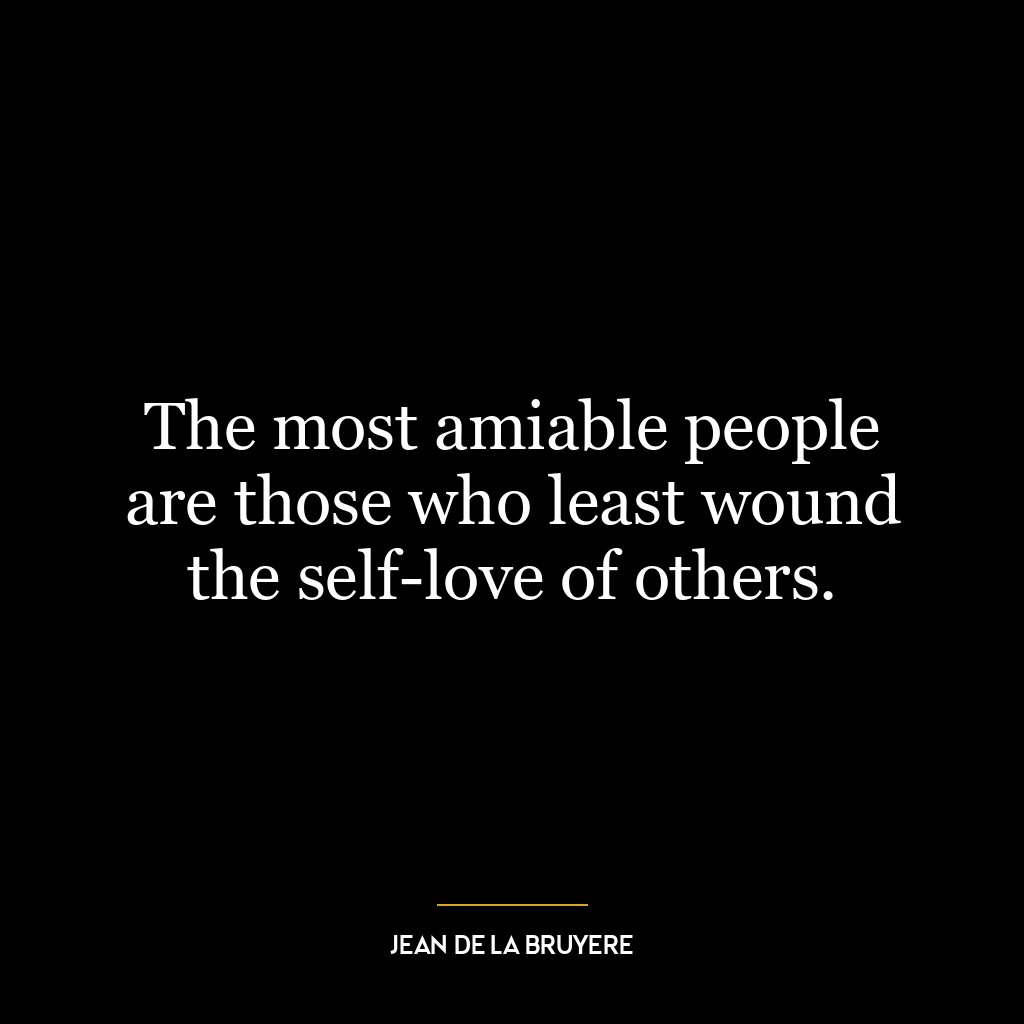How we treat the vulnerable is how we define ourselves as a species.
This quote implies that the measure of humanity is determined by how we treat the most vulnerable among us. Vulnerability here could be physical, emotional, or social, and it’s often those who are disadvantaged, marginalized, or oppressed. It suggests that our collective character, values, and integrity as a species are reflected in our actions and attitudes towards those who are less able to protect themselves.
The quote challenges us to consider empathy, compassion, and kindness as fundamental aspects of our humanity. It underscores the idea that our strength as a species is not just about survival of the fittest, but about our capacity to care for and protect those who are most at risk.
In today’s world, this quote is particularly relevant. For instance, in the context of social inequality, it encourages us to address systemic issues that perpetuate poverty, discrimination, and injustice. It’s a call to action for us to build societies that are inclusive, fair, and compassionate, where the well-being of the most vulnerable is a shared responsibility.
Similarly, in the context of the global environmental crisis, the quote reminds us of our duty to protect the planet, which is vulnerable to our actions. It suggests that our success as a species is not just about advancing technologically, but also about preserving the natural world for future generations.
In terms of personal development, the quote encourages us to cultivate empathy and compassion. It suggests that our personal growth is not just about achieving individual success, but also about becoming more aware of the needs of others and taking action to help. It challenges us to be kind, not just when it’s easy or convenient, but especially when it’s difficult, because that’s when it matters most. This perspective can help us become not just successful, but also more humane and fulfilled individuals.

